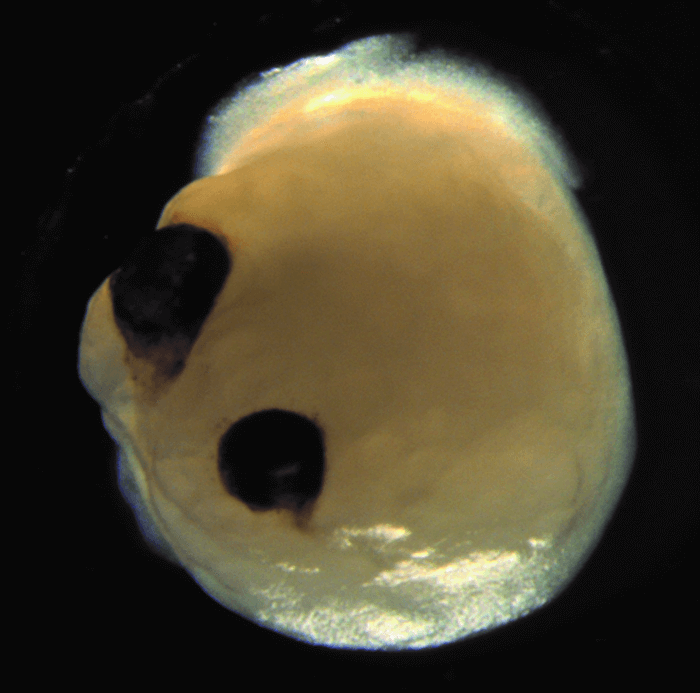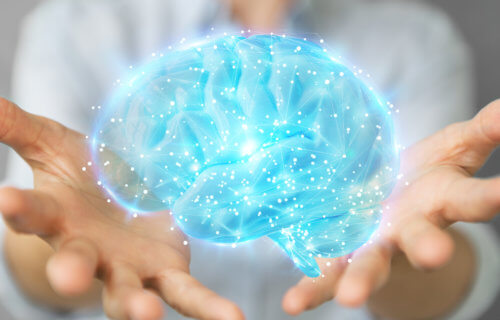HIROSHIMA, Japan — Scientists doing brain research could soon have an ethical and legal dilemma on their hands. A new study is looking at the question of whether a brain organoid fits the legal definition of a person. These tiny, lab-grown portions of brain tissue are currently helping researchers study human development and search for new treatments for neural diseases. However, all of this could stop if legal scholars find that mini brains deserve the same rights and protections that real people have.
A team at Hiroshima University examined this moral issue, studying what constitutes personhood and how brain organoids for scientific research fit the current definition.
“The moral status of human brain organoids has often been discussed, but their legal status has rarely been discussed,” says corresponding author Tsutomu Sawai, an associate professor in the Graduate School of Humanities and Social Sciences, in a university release. “To clarify the legal status of human brain organoids will illuminate issues such as what information should be informed to the cell donor, to what extent the donor’s consent justifies the research, and what uses are acceptable.”
What is a legal person?
The term “legal person” refers to any entity that holds legal rights and obligations. Sawai notes that this can apply to both humans and non-humans. The law calls human legal persons “natural persons,” meaning they came from a womb and can be legally considered “dead” when their heart or brain stops functioning. For non-human persons, referred to as “juridical persons,” this legal term can include corporations and governmental agencies.
So, how does a lab-grown brain fit into all of this? Sawai and his team note that, currently, brain organoids do not fit the basic requirements to meet the definition of a natural person. However, that could change as scientists learn more about these brain tissues and what they’re capable of after “birth.”
“Although human brain organoids do not constitute natural persons at present, the likelihood of their potential to become natural persons in the near future requires more thorough consideration in advance of that reality occurring,” says first author Masanori Kataoka, researcher in Hiroshima University’s Graduate School of Humanities and Social Sciences. “Research on linking human brain organoids with bodies is expected to advance rapidly in the coming years, whereas the conditions of natural personhood, especially viability and birth are becoming increasingly flexible and contentious.”

Elke Gabriel)
Could mini brains meet the same standard as a corporation?
Study authors note that the law considers corporations juridical persons so they can participate in legal matters. One example of this is creating and entering into various contracts. Kataoka says there are questions about whether this also applies to brain organoids — should living brain tissue have certain rights in legal issues? As scientists continue to grow more advanced human biomaterials in labs, the day may come where they’re able to think and react just like people. So, what happens then?
“Current brain organoid technology is in many ways quite limited, and it has not yet reached a stage where human brain organoids could become natural or juridical persons,” Sawai says. “However, as we have emphasized, this issue will soon become urgent once brain organoid technology has been further developed. In preparation for that time, it is essential to examine the accompanying questions thoroughly and in advance; we have taken the first step in that direction.”
The study is published in the Journal of Law and Biosciences.
You might also be interested in:
- ‘Mini-brains’ reveal genetic clues that schizophrenia develops in the womb
- ‘Mini brains’ created from stem cells in a lab grow their own eyes
- Lab-grown ‘mini-brains’ open door to better treatments for dementia, ALS


Then aborted fetuses are also persons with rights.
I was thinking along the same lines